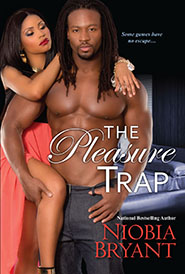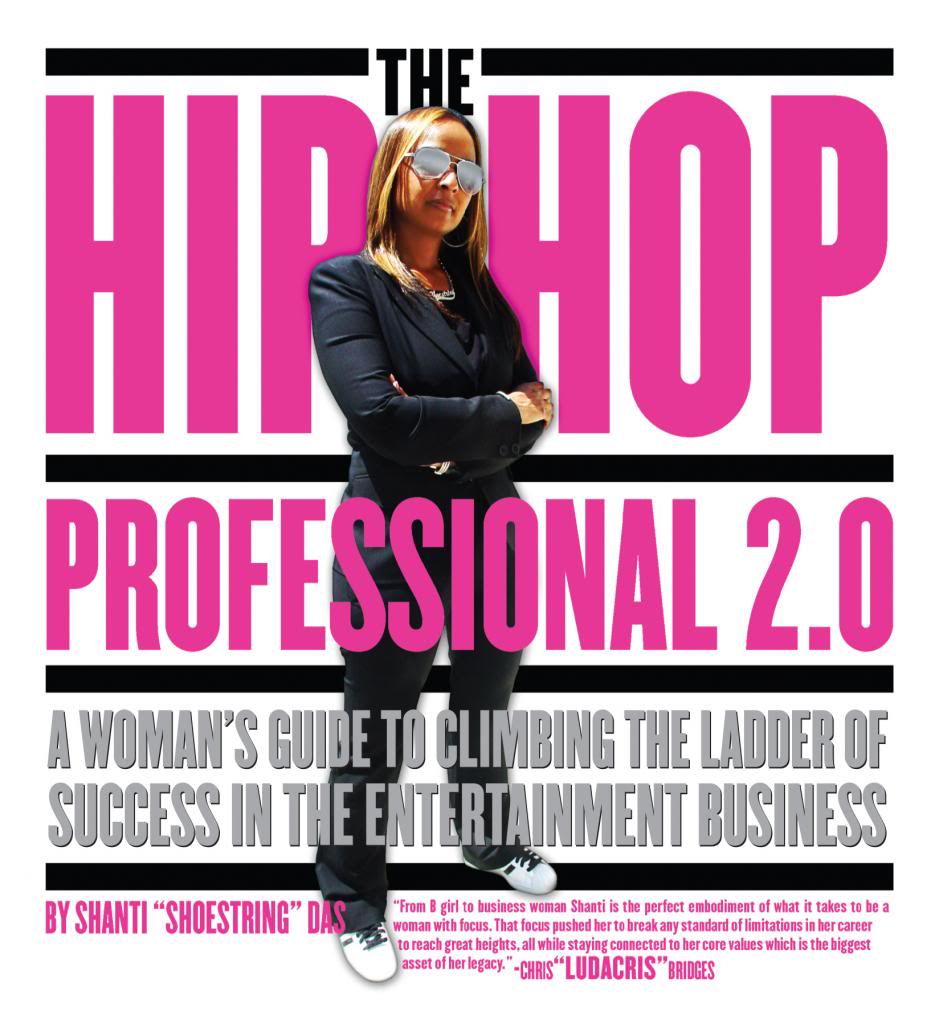Raise your hand if you, like Chocolate Mama here, love watching you some Divorce Court.
It’s not because I’m a morbid person who’s zealously watching the demise of a marriage with popcorn in one hand and M&Ms in another: in fact, as a happily married woman, I like to see couples remain together and become stronger as a result of appearing the program. Actually, the main reason I’m addicted to the show is because of Judge Lynn Toler (another Ohio native, heeeey!) who keeps it real as she deals with the multiple levels of dysfunction and devastation.
Despite a hectic show schedule and a family to raise, Ms. Toler released her second book earlier this month entitled Making Marriage Work; New Rules For an Old Institution, not only breaks down the core of the conflict, but it also provides wise and workable solutions on solving (or even circumventing) the most commonplace issues that occur in today’s unions.
You said something pretty startling about your own marriage in the second chapter: “Big E and I fell in love, and like most people in that frame of mind, we overlooked just about every potential concern and focused on how we felt.” Are you saying that simply marrying based on emotions is how people can go wrong?
“People fall in love and think it will all work itself out, but that airy tale version of marriage just isn’t true. Women especially want to close their eyes when they sense something funky about the guy that we like because we don’t want to scare them off. They don’t want to mess up the good feeling and the belief in the ‘soulmate’ thing. The truth is that you can fall in love with anybody, and that person may not share any of your needs, wants, desires or inclinations or aspirations. So once you are in love, you have to back up off of it and talk about it. Love withstanding, if you’re heading north and he’s heading south, eventually you two will break apart. You have to ask them what means more, an Escalade or a vacation? You gotta make sure that all of those positions are understood because if they’re not, you’re gonna have a problem.”
How common is infidelity in marriages, and do you consider it an automatic deal-breaker?
“I think that infidelity is always the function of something else. It’s either a function of the state of the relationship or it could be a function of the person that you’re with….a lot of different things, so you’ve got to figure out why they cheated. Some guys and some women just do it, so you shouldn’t take them back if cheating is just a function of who they are. But I gotta tell ya, people see it before they marry it: they’re always hoping that people will change, but if someone has that over-emphasized inward focus, is always about themselves and has to gratify their wants immediately, that’s a warning sign that could lead to a lot of things that can go wrong. So it’s not just the behavior, it’s about the character of the person that created the behavior, and you have to look at how well they can handle not being able to always get what they want and if they could be okay with it.”
From the bench and inside your new book, you stress that as a stepmother, you have regrets about how slowly the relationship evolved and that you didn’t do your best at the beginning. Can you elaborate on what you feel went wrong?
“What’s necessary across the board is establishing an individual relationship with each kid independent of the parent. Once you get married, find something that you can do together so that you can spend one-on-one time and eventually love one another. I didn’t do that, because I saw them as just the kids that came with my husband. On top of that, they were boys that were already teenagers too, and I had never been around boys, it was just me and my sister growing up. For example, I didn’t sit down with the then-17-year-old and say ‘What are you interested in? Let’s go do that.’ So we had to learn to love each other taking the long way around. It was my job to make that overture, and I didn’t do it. You have to show genuine interest and develop a relationship that’s independent of the one you have with their mother or father.”
Let’s say that a new spouse is not only indifferent to the stepkids, they’re being mean or hostile towards them. Should other family members step in? And if not, how can it be handled?
“The spouse with the children has to step up and say, ‘You hurt their feelings, and you gotta know that when you hurt their feelings, you’re hurting me. Not only are you making the relationship with them tough, it’s making yours with me tough, because that’s my flesh and blood. I love you and I can undersand the resentment, but I can’t have it.’ The kids only get to grow up one time, and how they’re treated impacts who they are: the confrontation doesn’t have to be done in a loud, angry or pushy manner, but it does need to be firm and resolute. Draw a line and make them respect it. And if you aren’t married to the stepparent, pull your brother or sister aside and tell them what you see—- Sometimes people vaguely feel what’s going on and just need to hear it confirmed by someone else.”
Let’s say that one spouse is particularly close to a parent, like the way you are with your mother: how can healthy boundaries be drawn and how can the spouse with the buddy parent make sure that they’re not allowing them to unduly influence the marriage?
“My mother doesn’t dip: if she comes to the house and sees something she doesn’t like, she’ll leave the room but won’t say anything. She might talk to me later about it, but she doesn’t intrude because she respects the union.
If you ask for help or advice, she’ll give it to you, and when things got really ugly in my marriage, she dipped in with me, not my husband. She was telling me, ‘You can only change you—you can’t change him, but once you start changing, he’ll change in acordance with that.’ She didn’t get mad with him because she realized that part of her job was to always made sure that he enjoyed her company and that she would always be welcome in his home and have access to the grandchildren, so the way she deals with me is with that perspective in mind. It makes my life easier and makes sure that I’m the one who’s ultimately responsible for any changes that need to be made to the relationship. She knows where her boundaries are.”
You stated in the book that men can take advantage of the fact that women are attentive to their needs and a lot of them don’t feel the urgency to do so in return—what you called ‘giving your spouse a glass of water even when you’re not thirsty.’ What can be done about that discrepancy, and if either spouse is confronted by their partner saying that they need to reciprocate more, how should that be done?
“Women are natural caregivers: we have the babies and spend a lot of time reading faces and figuring out what people need, so we spend a lot of time fulfilling them. Men, not so much. They do what they need to do, so if you have a need that they don’t have, they don’t understand it. And if you need to step up, reciprocate with a happy heart: cranky compromises don’t count, because that’s just making the other person pay. As an adult, you just need to tell yourself, ‘I can do this for another person even if it’s not what I want to do, because he or she is the person I picked.’”
Another concept you outline in your book was ‘feeding the right dog,’ going out of your way to tell your partner about the positive things that they do instead of harping on just the negative things. Why do you think that happens so often in relationships?
“It’s like shopping at a department store: when you get good service, you usually don’t write a letter about how Joanie did a good job, but if she’s pissy and moody, you will write that letter. We expect to be made happy by our spouses and that’s fine, but you have to acknowledge the happiness that is made. Whatever you would thank a stranger in doing for you, thank your spouse, because that feeds the love by reminding you of just how much they do for you and how those actions demonstrate love. Hearing and seeing love in different ways helps you as much as it does them, and it’s an easy thing to do.”
Ms. Toler, I admire the fact that you were so candid about what nearly led you and Big E to separate, where you were ‘going along to get along,’ he took advantage of it and you finally reached a breaking point. What have you learned about compromise since then, and what advice do you have for others dealing with a ‘my-way-or-the-highway’ spouse?
“First of all, you need to listen to the people around you—my mother had been telling me for years: ‘you keep backing up and compromising when you don’t mean it.’ I would just say ‘It’s not a big deal, it’s just about a movie or a restaurant. That’s a small thing.” And she said ‘Small things add up.’ It’s so much easier to compromise than to have the fight, but you have to pick something and say, ‘I’m not compromising anymore.’ A lot of it was my fault because compromising was just easier than standing my ground, so I trained him to simply look unhappy and get his way. Now he’s a good guy and he loves me, and but if he got to furrowing his brow, he got his way, and that’s what I taught him. That’s what my mother had told me: ‘You taught him that; he didn’t start out that way, you taught him to do that.’”
How can you recognize that there’s an issue?
“If you have doubts about comfortably expressing your opinion if it doesn’t happen to agree with theirs, then you’ve over-compromised, and there’s a power struggle there.”
What we’ve seen a lot of in the last 20 years is the growth of what I call ‘freestyle families,’ where folks just have babies with multiple people, leave, get with someone else and repeat the pattern, and they all but dismiss commitment by way of marriage. What do you think is going on to create that type of mindset?
“I think it’s a sense of surrender: not having children when I wasn’t married was a religion for me, because I had a direction for life where I wanted to go. But if someone doesn’t have any intent and they feel fine with how things are going that day, then they will do whatever.”
Is that a major factor in the breakdown of families today?
“Sure! There’s a reason why marriage has lasted throughout the ages: you just can’t just have babies with Peter, Paul and John and expect it to work out. There are too many contradicting needs and wants pulling you in so many different directions that it’s going to be a mess. It just has to. If you meet a guy with seven kids, who gets his money and his time? And if she’s got a kid with you and you’re giving her money, how can you be sure it’s not being spent on those other kids as well? Marriage is supposed to stop all of that chaos, because people don’t function well if those roles aren’t clearly defined.”
How do we keep our kids from falling into that type of dysfunction?
“You can’t let the world raise your kids, you’ve got to do it. You have to be able to ask them ,‘What do you want in 10 years? When you’re 18, you gotta go: if you’re continuing to learn, I’ll support you, but otherwise, I’m not gonna do it.’ I was talking to my 17-yr-old son the other day; he was leaving out with his date and I just said ‘Condom, condom, condom.’ He was embarrassed: ‘Mom stop, we’re not doing anything!’ I didn’t care that he was embarrassed, I just kept saying ‘condom, condom, condom!’ You gotta preach to them, ‘If a girl likes you and wants to keep you, she’ll get pregnant by you. Don’t believe ‘I’m on the pill,’ that’s the dumbest thing in the world and it won’t do anything for AIDS!’”
I have one last parenting question Ms. Toler: I’ve seen you at the bench dealing with a parent or stepparent that spoils their kids and won’t accept the fact that their spouse is trying to use reasonable discipline and structure, so they forbid the other partner any authority and it jeopardizes the marriage. How do you deal with those types?
“Well, it helps the ‘structuring’ spouse when I come in as a third party to tell them what’s going on, and what I usually say is, ‘You’re thinking about your own happiness at the cost of your kids. It’s easier to not discipline, so you’re doing what works for you as opposed to what’s best for the child. If you don’t give them discipline or structure, they’ll never learn to do anything, and it will hobble them socially and economically. Eventually, you’ll raise a child who has bad attitude and won’t leave your home, so you’re hurting them just to help yourself and you don’t have the right to do that to your children.’”
I learned so much from you today Ms. Toler, thank you for speaking with me today: is there any other parting bit of knowledge that you can give to folks about maintaining a good marriage?
“Basically, you have to work your marriage like it’s a job: the harder you work at the job, the better you get at it and the happier you become. Everyone wants to be happy first, but happy’s last.”





